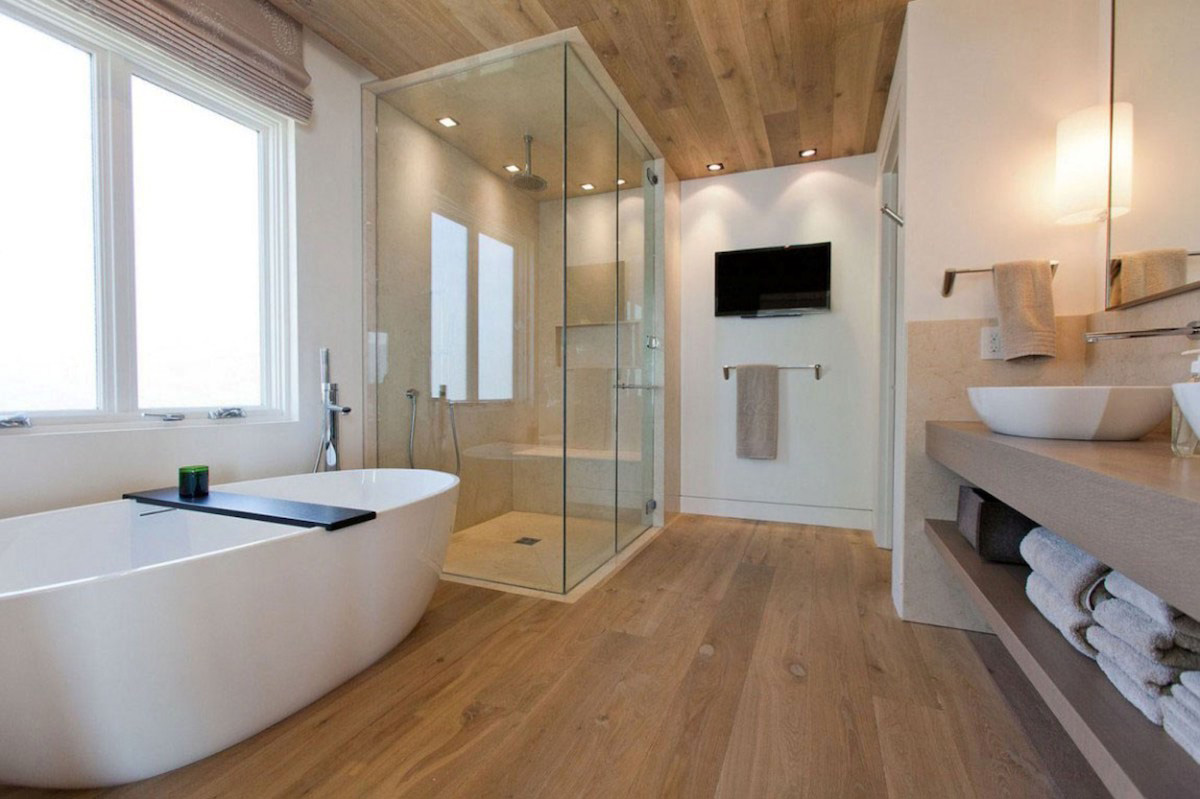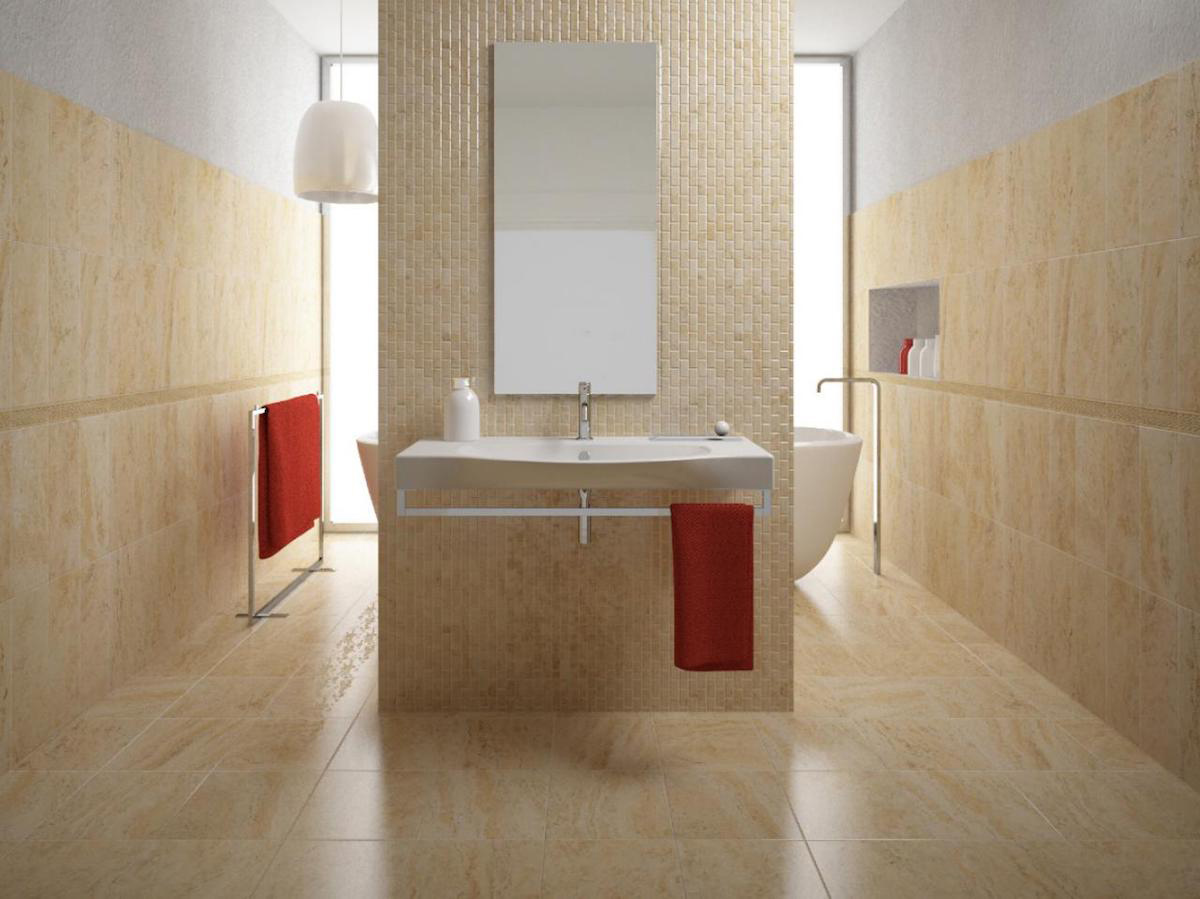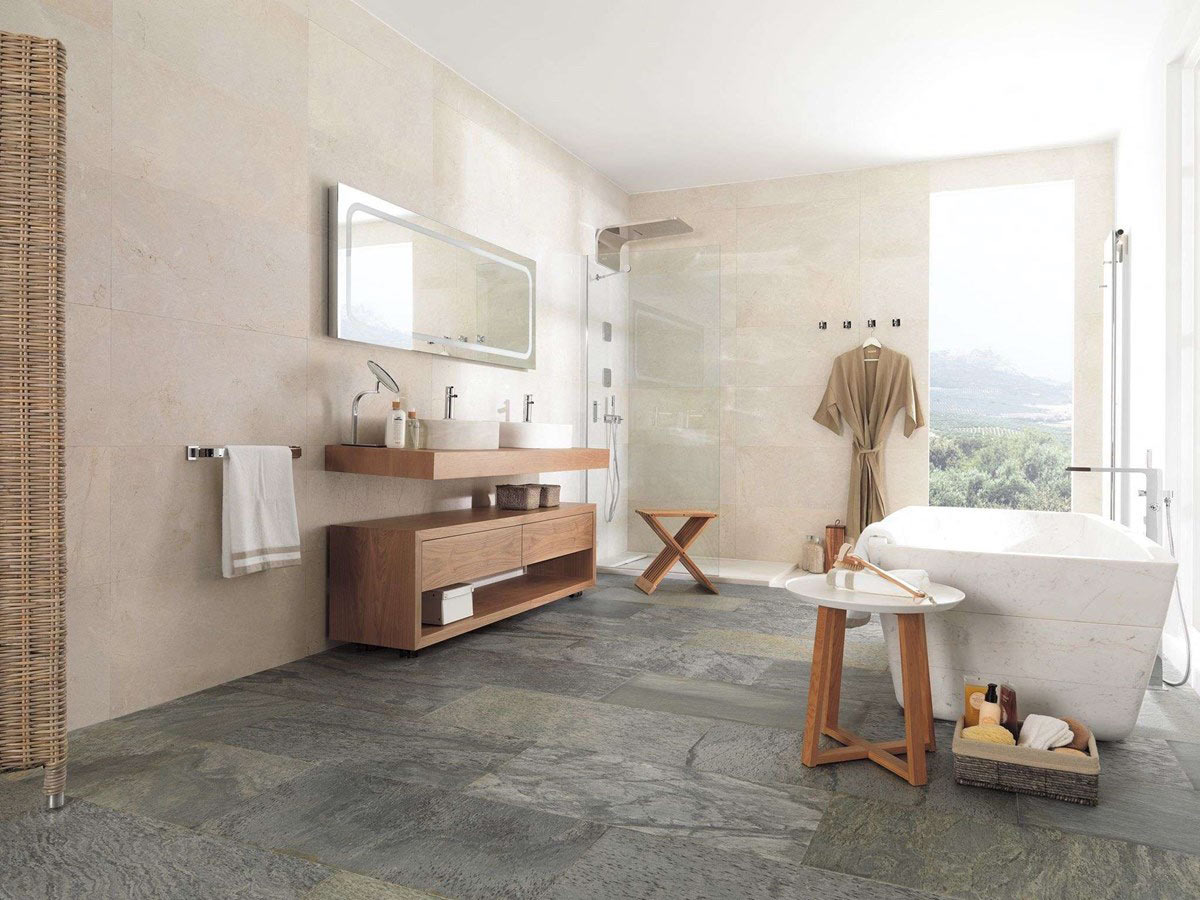From hardwood to stone, these are some of the more popular options when it comes to picking a flooring type for your new bathroom. Keep these great tips in mind and weigh your options well before making your selection.
1. Hardwood
The most attractive thing about a hardwood flooring for your bathroom is the elegant and classic look it provides. The colour and depth it provides is wonderful and it has the ability to soften the look of hard ceramic finish that your bathroom appliance may give off. On top of that, it provides great insulation and is fairly easy to clean.
However, hardwood is expensive and it is not very waterproof. Warping may occur too, especially if not cared for properly.

Image credit: Koligas
2. Vinyl
Another option to consider is a vinyl flooring for your bathroom. Not only is it durable and water resistant, but it’s affordable look mimics other high end products such as stone and ceramic. The insulation it provides is also great and its softness can provide relief for aching joints.
Unfortunately, due to the fact that vinyl is manufactured using polyvinyl chloride (PVC), this material may emit Volatile Organic Compounds (VOCs) after some time. Sharp objects may also damage vinyl flooring when dropped from a height.

Image credit: Ashley Fine Floors
3. Ceramic
Ceramic flooring is worth considering due to it’s extensive range of designs. On top of that, ceramic is highly durable and easy to maintain. Not only is it waterproof but also water resistant.
You may, however, have to start getting used to hard and cold flooring due to the the material and glaze used to make ceramic tiles. Ceramic also tends to be slightly pricey due to the difficulty of the installation process.

Image credit: The Flower Lab Interior Design
4. Porcelain
Porcelain is largely similar to its compatriot ceramic except for that fact that it is made from a more refined material. This means that it’s much stronger than ceramic due to its heavier density and has a much lower water absorption rate. The pattern and colour runs through the entire thickness of the tile making it virtually impervious to wear compared to the designs on ceramic which is limited to only the surface of the tile.
Due to it’s superiority over ceramic, porcelain tends to be more expensive and the expertise required to install these tiles is greater due to its hardness. These tiles require special tools for shaping and cutting.

Image credit: HGTV
5. Stone
The pros that come with stone flooring is the luxurious design and texture that it gives your bathroom. The flooring application and pattern is one of a kind because of the organic nature behind each piece of stone. It’s hardy exterior increases its longevity and it stays cool in warm weather.
Naturally, the price of stone will be higher than ceramic or porcelain and it requires regular cleaning and maintenance. Depending on the type of stone flooring, some textures may be more slippery than others. Also it’s hard surface also makes falls much more dangerous.

Image credit: Pastella



